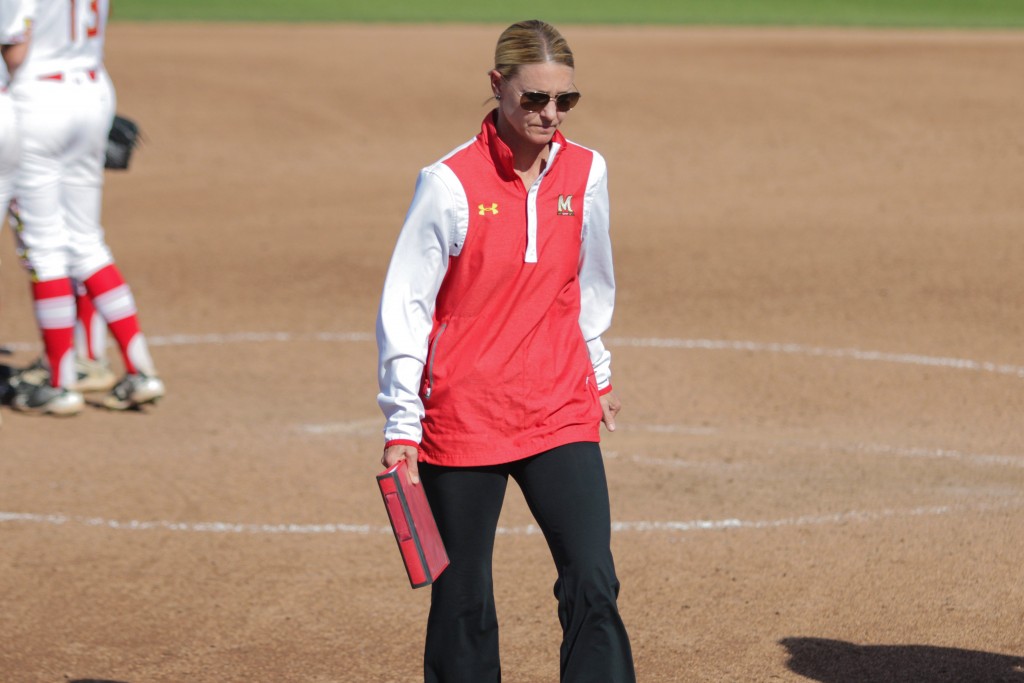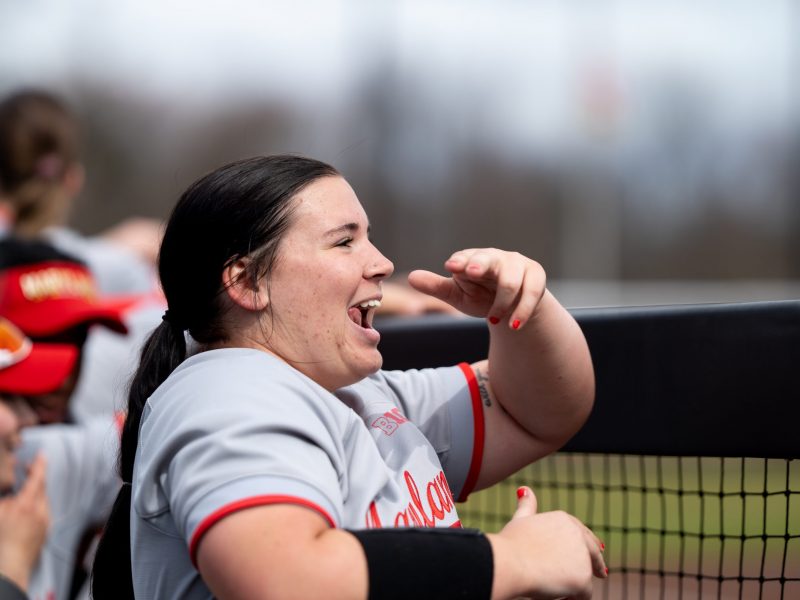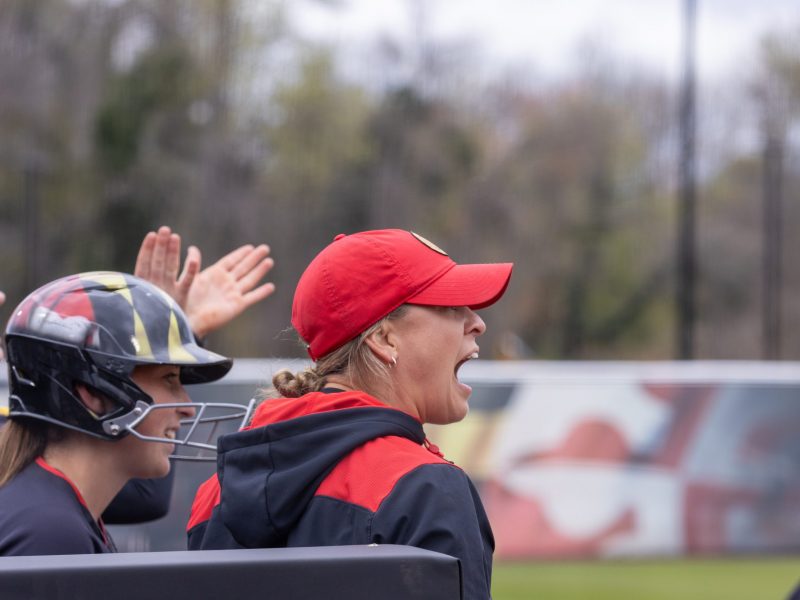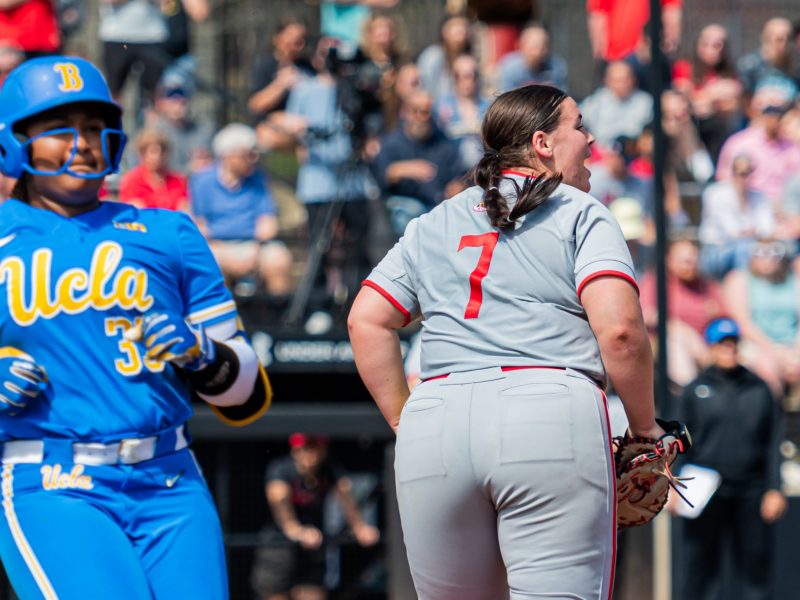The Maryland softball team faced Michigan pitcher Megan Betsa two times last season. She allowed just one run and two hits across 11 innings, throwing complete games in a pair of eight-run Wolverines victories.
The Terps hope to find more success against the two-time Big Ten Pitcher of the Year this weekend in a home showdown with No. 18 Michigan (29-8-1, 9-1 Big Ten). But given her team-best 1.33 ERA this campaign, they know they’ll need to adjust their approach at the plate.
“Some of the best pitchers, you might see one great pitch that you can handle as a hitter in the entire at bat,” coach Julie Wright said. “And if you take that for a strike, it’s only going to get nasty from there.”
[Read more: Despite its worst-ever winning percentage, Maryland softball is keeping its mood light]
In her last appearance, Betsa hurled 17 strikeouts in a win over Michigan State. She ranks second in the Big Ten in ERA and leads the conference in strikeouts (266).
Catcher Kristina Dillard said Betsa can throw “a little bit of everything,” but claimed her off-speed pitches, such as a drop ball, rise ball and backdoor curve, pose the greatest threat.
Infielder Anna Kufta, meanwhile, said keying in on specific pitches and looking for first-pitch strikes were useful strategies to combat Betsa’s repertoire. Plus, Wright emphasized that the Terps should not be passive at the dish.
“[We can’t take] those pitches that are in the zone that are pitches we can handle,” Wright said. “If she gets us down in the count she can get a little nastier, and she spins the ball really well.”
Last weekend against Northwestern, the Terps (8-28-1, 1-8) scored 14 runs, the most they’ve recorded in a Big Ten series this year. But five of those scores were unearned, as they capitalized on nine Wildcat errors.
While the Wolverines boast the third-highest fielding percentage in the country (.984), Wright said it would still be important to register productive outs.
“You always want to make the defense do something,” Wright said. “You don’t just want them to stand there and watch you swing three times and go sit.”
To emphasize her point in practice, Wright puts the Terps through situational hitting drills with a live defense fielding each play. Dillard said the trainings replicate in-game situations, making competitive action easier to handle.
In addition, Maryland used pitching machines that combine hard and soft pitches to prepare for its series against the Wolverines. The Terps worked against breaking balls that emulated Betsa’s style.
“The big thing in hitting is when you get a spinny pitcher, you have to hit through it,” Wright said. “If you get to it, and you pull off in any way, you won’t hit it as hard. The spin is what makes her great.”



